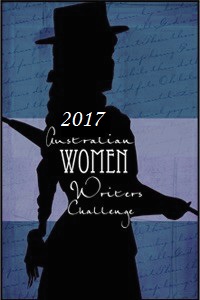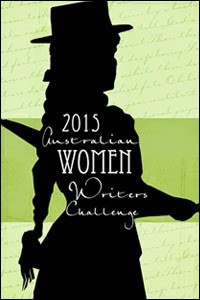Every Secret Thing by Marie Munkara
My rating: 4 of 5 stars
Goodreads blurb
When culture and faith collide . . . nothing is sacred
In the Aboriginal missions of far northern Australia, it was a battle between saving souls and saving traditional culture.
Every Secret Thing is a rough, tough, hilarious portrayal of the Bush Mob and the Mission Mob, and the hapless clergy trying to convert them. In these tales, everyone is fair game.
At once playful and sharp, Marie Munkara’s wonderfully original stories cast a taunting new light on the mission era in Australia.
‘told with biting wit and riotous humour’
Judges’ comments, Queensland Premier’s Literary Awards (2008)
My review
I intended to read this book for the 2015 Australian Women Writers challenge, but as I realised I had read it before, that was not to be.
However, in the spirit of the challenge – and because it is a must-read, and excellent with it – I am including this as an extra review.
Every Secret Thing is written as an account, told by anecdote, of the development of the relationship between the bush mob and the mission mob – the latter have set up the mission somewhere in northern Australia, not too far from a town referred to as Big Joint, with the purpose of Christianising and “civilising” the bush mob.
The various anecdotes tell, humorously, disputes and misunderstandings between the bush mob and the mission mob, and within each, with everyone’s flaws exposed and with the joke generally being on the mission mob – at least at first. The kids confound the visiting Bishop with their logic (why would Adam and Eve eat the apple instead of the snake when the snake would taste better?); Augustine and Methuselah outsmart Brother Michael and make off with various livestock in The Brotherhood; Pwomiga gives deliberate, and hilarious, mistranslations in Wurruwataka.
But as the book goes on, the stories become more and more bittersweet. The dark undercurrent which is evident from the beginning, such as oblique references to child sexual abuse, become stronger and more explicit, such as the story of Tapalinga and Perpetua, two members of the Stolen Generations, in The Garden of Eden. And the ending, which I won’t spoil, is very black indeed.
We have far too few stories about the mission mob/bush mob interaction from the perspective of the bush mob. What I think is particularly valuable about a book like this is that it treats the bush mob’s life pre-mission-mob as the baseline, and the interactions with the intruders, the parts of European culture/industralisation the bush mob accept or reject are explained, and make sense, in that context. For example, if you have always cooked over an open fire, why would you automatically recognise an oven as a device for cooking as opposed to a convenient storage space – or den for newborn puppies? To my mind, this is an effective method of refuting the proposition that Aboriginal Australians and Torres Strait Islanders are (or were before the coming of the white man) backwards, uncivilised, stupid and lawless. And whatever else, it is refreshing to start from this perspective instead of the perspective which uses the European Australian attitude as the default position.
This was a book I was very pleased to read again, and it is a book I think is a must-read for all Australians.
This is an extra review for the 2015 Australian Women Writers Challenge. You can see my full list of books here. You can find a full list of my reviews, and other posts relevant to the challenge, here.





